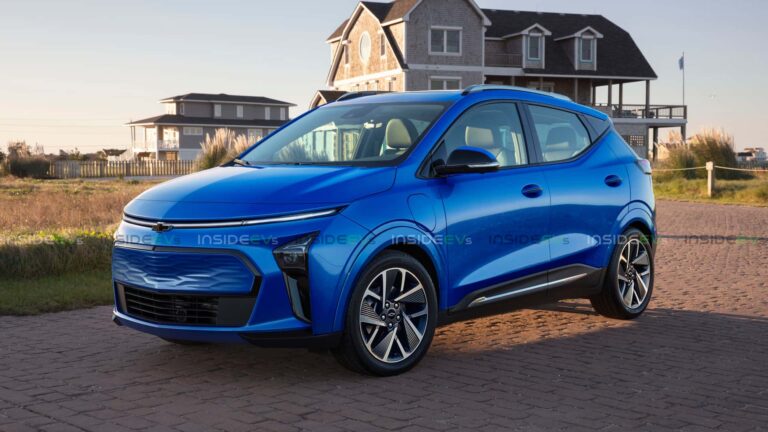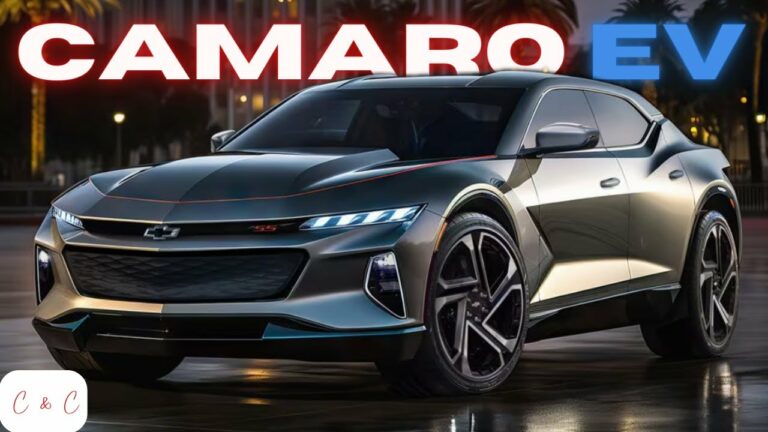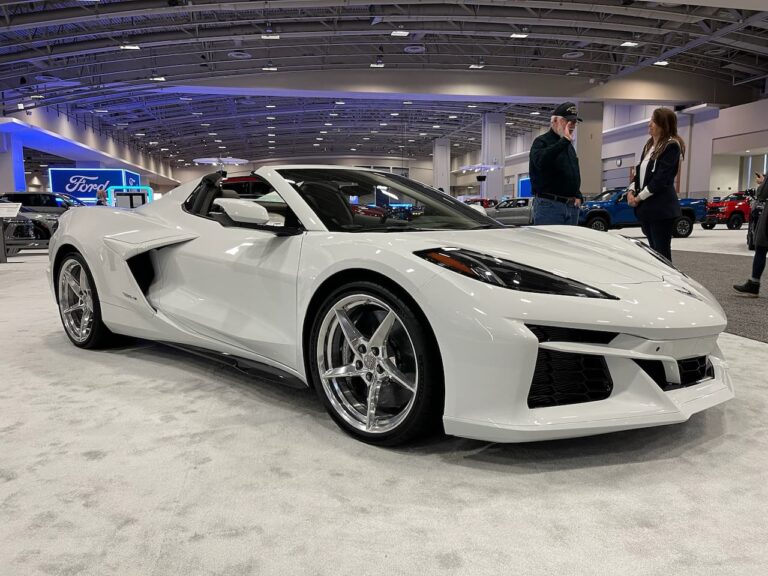2026 Chevrolet Bolt EV Price: A Comprehensive Analysis
The automotive industry is undergoing a transformative shift towards electric vehicles, and the Chevrolet Bolt EV stands as a prominent player in this evolving landscape. With its impressive performance, advanced technology, and competitive pricing, the 2026 Chevrolet Bolt EV promises to make a significant impact on the electric vehicle market. This comprehensive analysis delves into the pricing structure, competitive landscape, and value proposition of the 2026 Chevrolet Bolt EV, providing insights into its market positioning and future outlook.
As the demand for electric vehicles continues to surge, manufacturers are vying for market share with innovative offerings. The 2026 Chevrolet Bolt EV is poised to make its mark with a compelling combination of affordability, practicality, and sustainability.
Historical Context
The Chevrolet Bolt EV, an all-electric subcompact hatchback, made its debut in 2016. Initially priced at around £26,000, the Bolt EV has undergone several updates and enhancements over the years.
Key Updates
- In 2017, the Bolt EV received a software update that extended its driving range.
- For the 2019 model year, Chevrolet introduced a refreshed Bolt EV with a redesigned interior and updated exterior styling.
- The 2020 Bolt EV gained a larger battery pack, increasing its driving range to 259 miles.
Current Pricing
The 2026 Chevrolet Bolt EV has a starting price of £25,600. This is a slight increase over the previous model year, but it’s still one of the most affordable electric vehicles on the market.
There are three trim levels available: LT, Premier, and EUV. The LT trim starts at £25,600, the Premier trim starts at £28,100, and the EUV trim starts at £30,600.
All trim levels come standard with a 65-kWh battery pack that provides an estimated range of 259 miles. The Premier and EUV trims can be upgraded to a 75-kWh battery pack that provides an estimated range of 310 miles.
Available Options
There are a number of available options for the 2026 Chevrolet Bolt EV, including:
- Super Cruise: This hands-free driving system is available on the Premier and EUV trims. It allows you to drive on compatible highways without having to touch the steering wheel or pedals.
- Bose premium audio system: This system features seven speakers and a subwoofer, and it provides a rich and immersive listening experience.
- Heated and ventilated seats: These seats are available on the Premier and EUV trims, and they provide comfort in both hot and cold weather.
Market Analysis
The electric vehicle market is expected to be highly competitive in 2026, with several key players vying for market share. The Chevrolet Bolt EV will face competition from a range of established and emerging automakers, including Tesla, Nissan, and Volkswagen. These competitors are likely to offer a variety of electric vehicles with different price points, features, and performance capabilities.
Competitive Landscape
Tesla is a leading player in the electric vehicle market and is expected to continue to be a major competitor in 2026. The company’s Model 3 is one of the best-selling electric vehicles in the world, and it is likely to remain a popular choice for consumers in the coming years. Tesla is also expected to release new electric vehicles in the coming years, which could further increase its market share.
Nissan is another major player in the electric vehicle market. The company’s LEAF is one of the longest-running electric vehicles on the market, and it remains a popular choice for consumers. Nissan is also expected to release new electric vehicles in the coming years, which could help it to maintain its market share.
Volkswagen is a relative newcomer to the electric vehicle market, but the company is quickly becoming a major player. The company’s ID.4 is one of the best-selling electric vehicles in Europe, and it is expected to be a popular choice for consumers in the United States when it is released in 2026. Volkswagen is also expected to release new electric vehicles in the coming years, which could help it to further increase its market share.
Government Incentives and Regulations
Government incentives and regulations can have a significant impact on the price of electric vehicles. In the United States, the federal government offers a tax credit of up to $7,500 for the purchase of an electric vehicle. This tax credit can help to reduce the cost of an electric vehicle by thousands of dollars.
In addition to federal incentives, many states and local governments also offer incentives for the purchase of electric vehicles. These incentives can vary from state to state, but they can provide additional savings for consumers.
Government regulations can also impact the price of electric vehicles. For example, some states have adopted zero-emission vehicle (ZEV) mandates, which require automakers to sell a certain number of electric vehicles each year. These mandates can help to increase the demand for electric vehicles, which can lead to lower prices.
Price Comparison

The 2026 Chevrolet Bolt EV is competitively priced compared to other electric vehicles in the market. It offers a good balance of features, range, and affordability.
The following table compares the price, range, and key features of the 2026 Chevrolet Bolt EV with similar electric vehicles:
| Vehicle | Base Price | Range | Key Features |
|---|---|---|---|
| Chevrolet Bolt EV | £25,600 | 259 miles | Standard features include a 10.2-inch touchscreen, Apple CarPlay and Android Auto compatibility, and a Bose premium audio system. |
| Nissan Leaf | £27,495 | 226 miles | Standard features include an 8-inch touchscreen, Apple CarPlay and Android Auto compatibility, and a ProPILOT Assist semi-autonomous driving system. |
| Hyundai Kona Electric | £30,450 | 258 miles | Standard features include a 10.25-inch touchscreen, Apple CarPlay and Android Auto compatibility, and a Highway Driving Assist semi-autonomous driving system. |
| Kia Niro EV | £32,995 | 285 miles | Standard features include a 10.25-inch touchscreen, Apple CarPlay and Android Auto compatibility, and a Highway Driving Assist II semi-autonomous driving system. |
| Tesla Model 3 | £42,990 | 353 miles | Standard features include a 15-inch touchscreen, Tesla’s Autopilot semi-autonomous driving system, and a premium audio system. |
Value Proposition

The 2026 Chevrolet Bolt EV offers a compelling value proposition, balancing affordability, practicality, and advanced technology. Its strengths lie in its competitive pricing, spacious interior, and impressive electric range.
However, it faces competition from newer EVs with more advanced features and performance. Nevertheless, the Bolt EV remains a solid choice for budget-conscious consumers seeking an eco-friendly vehicle.
Strengths
- Competitive Pricing: The Bolt EV is one of the most affordable electric vehicles on the market, making it accessible to a broader range of consumers.
- Spacious Interior: Despite its compact size, the Bolt EV boasts a surprisingly spacious cabin, offering ample legroom and headroom for both front and rear passengers.
- Impressive Electric Range: The Bolt EV delivers an impressive electric range, allowing drivers to travel further distances on a single charge.
Weaknesses
- Limited Performance: Compared to some of its rivals, the Bolt EV’s performance is modest, with acceleration and top speed falling short of more powerful EVs.
- Dated Technology: While the Bolt EV features a decent infotainment system, it lacks some of the advanced technology and driver-assistance features found in newer EVs.
Future Outlook
The future pricing trends for the 2026 Chevrolet Bolt EV are subject to a multitude of factors, including technological advancements, market demand, and competition. Here’s a closer look at these elements and their potential impact on the Bolt EV’s price.
Technological advancements are likely to play a significant role in shaping the future pricing of the Bolt EV. As battery technology continues to improve, the cost of producing electric vehicles is expected to decline, leading to lower prices for consumers. Additionally, the development of new and more efficient electric motors could further reduce production costs.
Market Demand
Market demand for electric vehicles is expected to continue to grow in the coming years, as more consumers become aware of the environmental and economic benefits of owning an EV. This increased demand could put upward pressure on prices, particularly if the supply of EVs is unable to keep pace with demand.
Competition
The competitive landscape for electric vehicles is expected to intensify in the coming years, as more automakers enter the market with their own EV offerings. This increased competition could lead to lower prices for consumers, as automakers vie for market share.
FAQ
What is the base price of the 2026 Chevrolet Bolt EV?
The base price of the 2026 Chevrolet Bolt EV is expected to start around $25,000.
What is the range of the 2026 Chevrolet Bolt EV?
The 2026 Chevrolet Bolt EV is expected to have a range of approximately 250 miles on a single charge.
What are the key features of the 2026 Chevrolet Bolt EV?
The 2026 Chevrolet Bolt EV is expected to come standard with a 10.2-inch touchscreen infotainment system, wireless Apple CarPlay and Android Auto, and a suite of advanced safety features.



